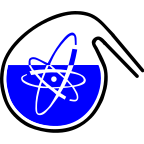Speaker
Description
Nuclear chemistry works play an essential role in many scientific fields, be it safety of nuclear facilities, environmental science, radioanalytics, nuclear dating for climate reconstruction, nuclear astrophysics, basic nuclear physics or medicine, only to mention part of them. A closer look at all these branches of science reveals that the availability of well-characterised radioactive materials in sufficient quantities as well as the establishment of reliable and efficient measurement methods are indispensable prerequisites for a large number of successful experiments, applications and results. Nevertheless, the contribution that radiochemistry makes in all these cases is often underestimated. Many of our partners from other scientific fields are not aware that the characterisation of the radionuclide inventory of irradiated components to be disposed or the production of a target or a sample is often a lengthy development process. It is not uncommon for entire doctoral theses or larger scientific projects to be needed to develop the appropriate methods and to produce the required samples in the appropriate quantity and quality.
This presentation will illustrate with some representative examples the important role of radiochemistry, starting from the determination of the radionuclide inventory of spallation targets foreseen for disposal to the preparation of radioactive targets for cross-section determinations of nuclear reactions and finally addressing sample preparation methods for half-life determinations. The importance of well-characterised radioactive samples for the quality of astrophysical experiments, the effort needed to declare radioactive waste comprehensively, and the power of radiochemistry to determine half-lives of long-lived radionuclides will be shown and explained in detail. Selected results as well as future needs and requirements will be discussed.

